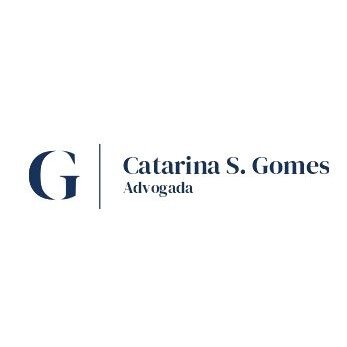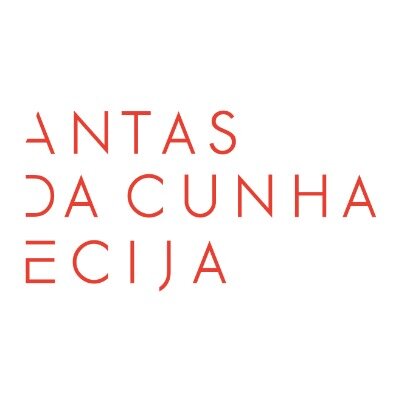Best Debt Capital Markets Lawyers in Braga
Share your needs with us, get contacted by law firms.
Free. Takes 2 min.
List of the best lawyers in Braga, Portugal
About Debt Capital Markets Law in Braga, Portugal
Debt Capital Markets (DCM) are a vital part of the financial system in Braga and throughout Portugal. They refer to the marketplace where companies and public entities raise funds through the issuance of debt instruments like bonds, notes, and other securities. Braga, a thriving Portuguese city with a growing economy, has increasingly seen businesses and municipal bodies utilize debt capital markets to finance growth, infrastructure improvements, and other strategic developments. DCM activities in Braga operate within a robust legal and regulatory framework, ensuring transparency, investor protection, and market stability.
Why You May Need a Lawyer
Legal advice in the field of Debt Capital Markets can be critical for various reasons. Individuals and organizations in Braga may need a lawyer when issuing bonds, negotiating loan agreements, or structuring complex financial instruments. Common situations include:
- Companies or public entities seeking to raise capital through bond offerings
- Investors assessing the risks and compliance requirements of different fixed-income securities
- Corporate restructurings that involve changes in debt structure
- Regulatory review and compliance checks for cross-border offerings
- Dealing with defaults or debt recovery processes
- Due diligence for mergers or acquisitions involving debt instruments
- Negotiating terms in syndicated loans or large financing projects
Local Laws Overview
Debt Capital Markets in Braga operate under Portuguese national legislation, supplemented by European Union regulations. Key aspects of local laws and regulations include:
- Securities Market Code (Código dos Valores Mobiliários): Governs the issuance, trading, and transparency requirements of publicly traded debt instruments.
- The Bank of Portugal (Banco de Portugal): Exercises regulatory oversight, particularly for banking and credit institutions involved in DCM transactions.
- CMVM (Comissão do Mercado de Valores Mobiliários): The Portuguese Securities Market Commission monitors and enforces compliance for public offerings and trading of debt instruments.
- Prospectus Requirements: Most public offerings of bonds or notes must have an approved prospectus detailing the terms and risks for potential investors.
- EU Regulations: As a member of the European Union, Portugal adopts EU-wide financial market regulations, such as MiFID II and the Prospectus Regulation.
- Transparency and Disclosure: Issuers must provide regular disclosures to regulatory bodies and investors to maintain market confidence.
Frequently Asked Questions
What are Debt Capital Markets?
Debt Capital Markets are venues where organizations raise funds by issuing debt securities, such as bonds, to investors rather than selling shares or equity.
Who regulates Debt Capital Markets in Braga?
CMVM, the Portuguese Securities Market Commission, regulates debt securities alongside oversight from the Bank of Portugal for financial institutions.
What types of entities issue debt instruments in Braga?
Corporations, municipalities, government agencies, and sometimes non-profits can issue debt instruments to finance projects or operations.
Is it necessary to publish a prospectus for all debt issuances?
Most public offerings require a prospectus approved by the CMVM, though private placements or certain exempt transactions may not need a formal prospectus.
What risks are involved in investing in debt securities?
Risks include issuer default, interest rate changes, market price fluctuations, and regulatory changes affecting the security or its trading environment.
How are international investors treated in Braga's Debt Capital Markets?
Portugal and Braga welcome international investors, but they must comply with local and EU regulations regarding disclosure, anti-money laundering, and taxation.
What legal documents are involved in a debt issuance?
Typical documents include the prospectus, subscription agreements, trustee deeds, terms and conditions of the notes or bonds, and regulatory filings.
Can debt securities be listed on a stock exchange in Portugal?
Yes, debt securities can be listed on Euronext Lisbon, which serves Braga and the rest of the country, subject to compliance with listing and disclosure rules.
How can I recover funds if a borrower defaults?
The recovery process may involve negotiations, restructuring, or legal enforcement through courts. Specialized lawyers can guide creditors through these procedures.
What are the ongoing obligations for issuers after a debt offering?
Issuers must comply with regular financial reporting, corporate governance standards, and timely disclosure of events that could affect the debt instruments.
Additional Resources
If you need further information or support relating to Debt Capital Markets in Braga, the following resources can be helpful:
- CMVM (Comissão do Mercado de Valores Mobiliários) - National securities market regulator
- Banco de Portugal - Central bank and financial regulator
- Euronext Lisbon - Main securities exchange for debt instruments
- Portuguese Bar Association (Ordem dos Advogados) - For finding qualified legal professionals in Braga
- Local law firms with expertise in banking, finance, and capital markets
- Braga Chamber of Commerce - Business advisory and relevant connections
Next Steps
If you require legal assistance in Debt Capital Markets in Braga, it is important to:
- Determine the scope of your needs, such as issuing debt, investing, or handling disputes
- Prepare documentation regarding your business, financial status, and objectives
- Research and consult a qualified lawyer with a proven track record in DCM transactions
- Request an initial consultation to assess your legal and regulatory options
- Stay informed about local and European regulations by reviewing updates from governmental bodies
Lawzana helps you find the best lawyers and law firms in Braga through a curated and pre-screened list of qualified legal professionals. Our platform offers rankings and detailed profiles of attorneys and law firms, allowing you to compare based on practice areas, including Debt Capital Markets, experience, and client feedback.
Each profile includes a description of the firm's areas of practice, client reviews, team members and partners, year of establishment, spoken languages, office locations, contact information, social media presence, and any published articles or resources. Most firms on our platform speak English and are experienced in both local and international legal matters.
Get a quote from top-rated law firms in Braga, Portugal — quickly, securely, and without unnecessary hassle.
Disclaimer:
The information provided on this page is for general informational purposes only and does not constitute legal advice. While we strive to ensure the accuracy and relevance of the content, legal information may change over time, and interpretations of the law can vary. You should always consult with a qualified legal professional for advice specific to your situation.
We disclaim all liability for actions taken or not taken based on the content of this page. If you believe any information is incorrect or outdated, please contact us, and we will review and update it where appropriate.











